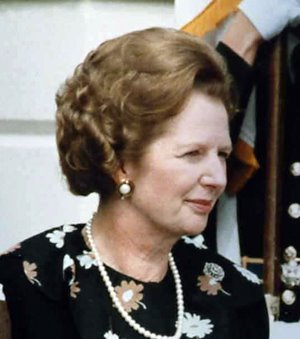On the 1983 General Election: The party platform in Canada is different from Party Manifestos in Britain: policy is explicitly outlined in the manifesto. The Labour Party process of policy development is ineffective and bungled. Thatcher created policy groups that involved the whole party in development and also allowed for fresh ideas. The three most important pledges in the election where 1) to accelerate privatization, which was fundamental to their economic approach selling British Telecom, British Airways… 2) trade union reform building on the Trade Union Democracy Green Paper, Thatcher promised legislation to require ballots for the election of trade union governing bodies, 3) adjust local government decentralized to local constituencies. Elections take place on Thursdays. Planning the actual date is important for timing vacation of the public. Election planning brings into question matters of the head of government’s responsibilities abroad. Thatcher cancelled plans with Reagan. The Scottish Conservative Party was still on her agenda for a visit.
 During the campaign, the Conservatives successfully convinced voters of their trustworthiness with the economy, defence and security policy. Thatcher enjoys verbal combat. Thatcher focused on marginal seats. Thatcher counts the days according to D-Day distance hence D-21 or 21 days till Election Day. Thatcher joked that the Labour Party would try to nationalize socks if they could. The sinking of the ARA Belgrano appeared as attack point for Labour. The Belgrano had to be sunk according to Thatcher: she made it explicit that it was a threat to the task force. Labour was divided from within over unilateral disarmament. Jim Callaghan was against that policy. Michael Foot had trouble controlling his Labour Party backbenchers. Reagan wanted Thatcher to win. Thatcher met with Reagan during the election period to flesh out further relation’s a) unity over NATO, b) Cruise Missile development…the subsequent proposal was attacked by Pierre Trudeau for not ‘talking softly to the soviets’. A punk rocker stated that it was better to have the Iron Lady than those cardboard men. Thatcher gained a majority of 144 seats. It was a success; the largest of any party since 1945. The Left could never again credibly claim popular support for their programme of massive nationalization, hugely increased public spending, greater trade union power and unilateral nuclear disarmament. Socialism was built into the institutions of Britain. It would be difficult to overcome. But Thatcher felt it had to be.
During the campaign, the Conservatives successfully convinced voters of their trustworthiness with the economy, defence and security policy. Thatcher enjoys verbal combat. Thatcher focused on marginal seats. Thatcher counts the days according to D-Day distance hence D-21 or 21 days till Election Day. Thatcher joked that the Labour Party would try to nationalize socks if they could. The sinking of the ARA Belgrano appeared as attack point for Labour. The Belgrano had to be sunk according to Thatcher: she made it explicit that it was a threat to the task force. Labour was divided from within over unilateral disarmament. Jim Callaghan was against that policy. Michael Foot had trouble controlling his Labour Party backbenchers. Reagan wanted Thatcher to win. Thatcher met with Reagan during the election period to flesh out further relation’s a) unity over NATO, b) Cruise Missile development…the subsequent proposal was attacked by Pierre Trudeau for not ‘talking softly to the soviets’. A punk rocker stated that it was better to have the Iron Lady than those cardboard men. Thatcher gained a majority of 144 seats. It was a success; the largest of any party since 1945. The Left could never again credibly claim popular support for their programme of massive nationalization, hugely increased public spending, greater trade union power and unilateral nuclear disarmament. Socialism was built into the institutions of Britain. It would be difficult to overcome. But Thatcher felt it had to be.
